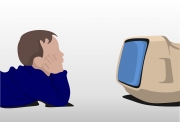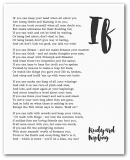
Being Good at Chemistry Means Asking Yourself the Right Questions

When I tell people I teach chemistry for a living, I get a number of responses. Some of the more common ones:
“Oh, I hated chemistry in high school.”
“You must be smart.”
“I had a bad teacher.”
Oftentimes whether someone likes or hates the subject depends on the teachers they’ve had. I’d like to think that my students enjoy the subject because they had a good teacher.
In reality, it’s not about me, but about tapping into something in us all.
We all like to think that we’re smart and the coolest thing about my subject is that a huge amount of it just makes sense and doesn’t require much teaching.
We all know that you have to heat up water to get it to boil. We all know that we can only make two sandwiches with two pieces of meat, even if we have a whole loaf of bread. We all get the fact that a balloon will pop if you fill it with too much air.
The truth is we study chemistry every day of our lives and don’t know it. It is the human experience of growing up and figuring out how the world works. It happens when we splash in the bathtub and kick a ball. It happens when we eat ice cream and it melts down the cone. We learn chemistry when we blow on our food when it’s too hot.
I find myself asking questions all day at school. The best parts of my day are helping a student realise they already know the answer to the chemistry issue at hand. I just have to ask them the right questions.
The best students ask themselves the right questions. I know I’ve really succeeded when a student looks at a problem and begins asking themselves the right questions.
What does the problem ask for?
What information does the question provide?
What do I know about the topic?
What units should my answer have?
Does my answer make sense; is it reasonable?
Recently I had a student struggling to understand a problem involving periodic trends. Most of us have played with magnets. Although the electric force is the relevant one, magnetic behaviour is similar. Instead of north and south poles, we can substitute the ideas of positive and negative charges.
Most of us can answer questions about magnets - the electric force acts similarly:
What happens when opposite poles (charges in our case) are placed near each other?
What happens when same (charges) are placed near each other?
What happens when opposite charges are brought closer together?
What happens when same charges are brought closer together?
Add a bit of knowledge about the structure of the atom to answer:
Where are the positive charges, the protons?
Where are the negative charges, the electrons?
How do electrons and protons feel about each other?
How do electrons feel about each other?
How would an electron feel differently if there were other electrons between it and the protons?
If an electron were closer to the proton, would it be easier or harder to separate them?
These questions frame the basic ideas of attraction and repulsion which help us predict the ways properties vary as we move around the periodic table. Trends in atomic size, ionisation energy, and electronegativity all break down to simple ideas of attraction and repulsion.
Attraction and repulsion are something we understand from a very young age, either with magnets, food, or people.
We all get hungrier the closer our favourite food is to us. We all feel a greater aversion to our annoying coworker as they close in on us. We don’t feel as uncomfortable around our ex when there are a lot of other people around, who shield us from our ex.
To be fair, there are some bits of information we have to memorise or learn in chemistry class. It doesn’t all reside in our brain from birth. Take the fact that electrons exist in layers or shells surrounding a tiny positive nucleus of an atom for example.
However, compared to many other areas of study, chemistry requires surprisingly little memorization of facts or knowledge. Instead, the good chemistry student memorises a bit and then asks questions:
Questions that tap into well-founded understandings of our world.
Questions that lead to other questions, to guide us to the answer.
Questions that train our brains to take information and apply logic and reason to it.
Learn to ask yourself the right questions and you’ll realise you do know the answer. Learn to ask yourself the right questions and no matter what life throws at you, you will have the skills to arrive at the best answer.
Chemistry isn’t about being smart or having a lot of knowledge, it is just a matter of asking the right questions.
Subscribe with us
Other articles
-
Posted by: Musicoholic M. | Date: 29/11/2016
-
Posted by: Hamza S. | Date: 04/01/2019
-
Posted by: Olaoluwapo S. | Date: 21/12/2018
-
Posted by: Tamara D. | Date: 06/05/2019
-
Posted by: Aisha . | Date: 11/08/2020































